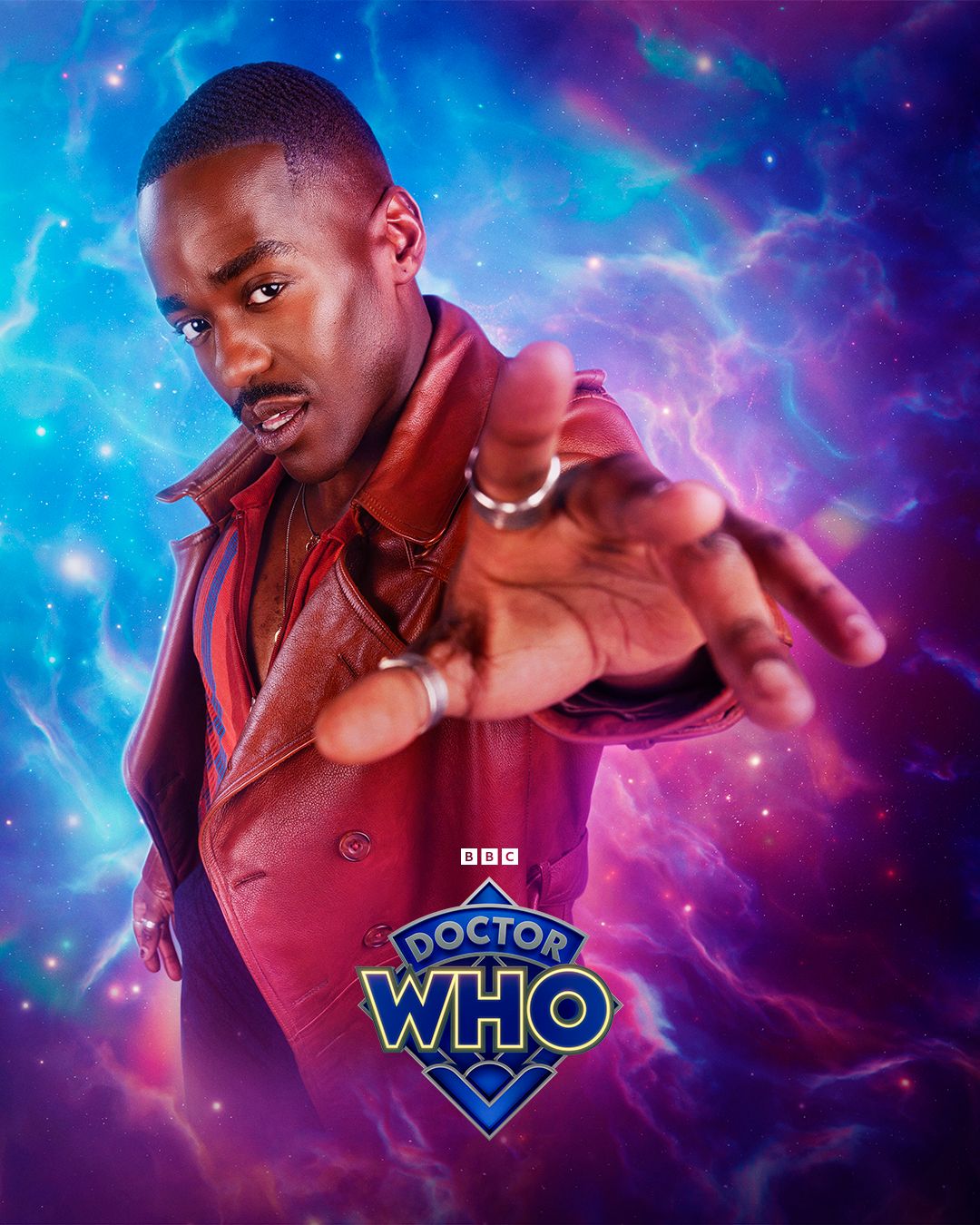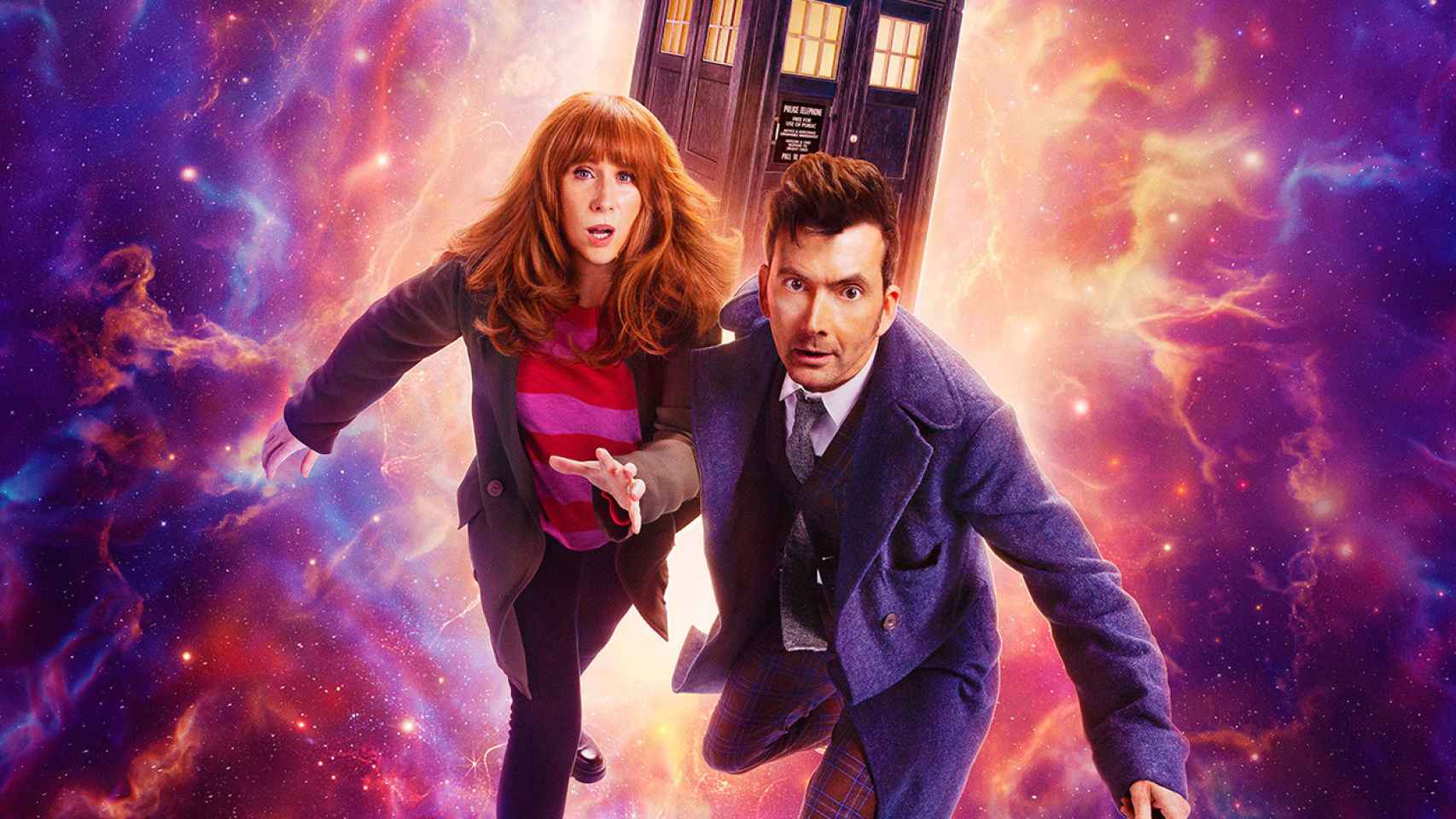Doctor Who Christmas Special 2026: The Chronos-Carols of the Yuletide Nexus

As the festive season of 2026 drew to a close, anticipation for the annual Doctor Who Christmas Special reached a fever pitch. Following a triumphant return to form under Russell T. Davies, and with Ncuti Gatwa’s Fifteenth Doctor firmly established as a vibrant, enigmatic force of nature alongside Millie Gibson’s wonderfully grounded Ruby Sunday, the stage was set for an adventure that promised both festive cheer and cosmic peril. And indeed, "The Chronos-Carols of the Yuletide Nexus" delivered on all fronts, weaving a tale of stolen joy, temporal harmony, and the enduring power of connection.
The special opened, as many Doctor Who Christmas episodes do, with a sense of wonder. The TARDIS materialised not on a snow-dusted Earth, but amidst the swirling, kaleidoscopic lights of the Yuletide Nexus – a legendary, multi-dimensional marketplace that coalesced annually from across time and space, drawing countless species to celebrate their diverse festive traditions. Imagine a cosmic Covent Garden, bustling with beings of every conceivable shape and hue, exchanging gifts, sharing alien carols, and partaking in delicacies that defied earthly physics. The Doctor, resplendent in a shimmering, subtly festive suit, and Ruby, wrapped in a practical yet stylish winter coat, were immediately swept up in the joyous chaos.
But beneath the surface glitter, a discordant note began to hum. Decorations flickered erratically, their vibrant colours fading to a dull monochrome. Carolers, their voices once soaring with harmonious cheer, found themselves singing off-key, their expressions shifting from delight to a vague, unsettling apathy. Gifts, unwrapped with eager anticipation, seemed to lose their lustre, their recipients feeling only a hollow echo of excitement. The very spirit of celebration was being leached away, leaving behind a curious emptiness.
The Doctor, ever attuned to the subtle vibrations of reality, felt it first – a temporal dissonance, a faint, almost imperceptible tremor in the fabric of the Yuletide Nexus. Ruby, with her keen empathy, noticed the emotional shift in the crowd, the slow, creeping despondency replacing genuine merriment. They quickly realised this wasn’t just a power outage or a bad batch of festive punch; something was actively draining the joy from the celebrations.
Their investigation led them through labyrinthine market stalls and across gravity-defying bridges, following the trail of fading cheer. They encountered a young Xylosian child, their multi-jointed limbs drooping, unable to recall the melody of their family’s traditional "Song of Starlight." This poignant encounter struck a chord with Ruby, whose own origins on Christmas Eve made her particularly sensitive to the loss of festive memory.
The source of the disturbance was soon revealed: the Chronomancer. Not a monster in the conventional sense, nor a being of malice, but an entity of immense, ethereal power that existed outside the linear flow of time. It was a colossal, shimmering nebula of light and shadow, its form constantly shifting, perceiving "celebration" – the concentrated emotional energy of joy, hope, and togetherness – as a raw, harvestable resource. Drawn by the sheer, unprecedented intensity of the Yuletide Nexus, the Chronomancer had begun to siphon off this "essence of celebration," collecting it as "Chrono-Carols" in a vast, temporal archive. It was an act of pure, unthinking consumption, akin to a cosmic whale filtering plankton, utterly oblivious to the devastation it wrought on the emotional and cultural landscapes of countless worlds.
The stakes became terrifyingly clear. If the Chronomancer continued its harvesting, it wouldn’t just ruin Christmas at the Yuletide Nexus; it would unravel the very fabric of festive traditions across countless worlds and timelines. Memories of shared joy would be erased, cultural touchstones dissolved, and the concept of collective celebration itself could vanish, leaving behind a universe devoid of one of its most fundamental, unifying forces. The spirit of Christmas, as a universal concept of hope and togetherness, was quite literally at risk.
The Doctor and Ruby tracked the Chronomancer to its central chamber, a breathtaking, yet unsettling, space located at the heart of the Nexus’s temporal core. It was a cathedral of stolen moments, filled with shimmering, fragmented echoes of Christmases past, present, and future. Here, the Xylosian child’s Song of Starlight flickered, a faint, almost forgotten melody among countless others. Victorian carolers hummed silently, their voices muted. Futuristic beings danced in slow motion, their laughter unheard. It was a beautiful, terrifying graveyard of joy.
The confrontation with the Chronomancer was not a battle of force, but of understanding. The Doctor, with his characteristic blend of scientific brilliance and profound empathy, attempted to communicate with the entity. He explained that joy was not a finite resource to be consumed, but an infinite experience to be shared. He tried to convey the intricate, delicate balance of memory, tradition, and emotion that made up true celebration. But the Chronomancer, existing beyond human concepts, struggled to grasp this abstract notion.
It was Ruby who provided the crucial breakthrough. Recalling the Xylosian child’s distress, she approached a flickering echo of their family’s Christmas, its colours muted, its melody almost gone. With gentle encouragement, she helped the child recall the forgotten lyrics, humming along, her voice a soft counterpoint to the fading sounds. As the child remembered, a small, genuine burst of shared joy emanated from them, a pure, unadulterated spark of connection. The Chronomancer, for the first time, observed not the energy of celebration, but its resonance. It saw the act of sharing, the warmth of memory, the beauty of creation rather than consumption.
This demonstration, coupled with the Doctor’s persistent, heartfelt explanation, began to shift the Chronomancer’s alien perception. It started to understand that the true power of celebration lay not in its quantity, but in its quality – in the connections it forged, the memories it created, and the hope it inspired.
The resolution was ingenious and deeply moving. The Chronomancer didn’t simply "release" the stolen Christmases in a single, catastrophic burst, which would have caused temporal chaos. Instead, guided by the Doctor, it began to re-broadcast them gently, like a universal radio signal of joy. The Chrono-Carols, once harvested, were now subtly diffused back into their rightful timelines, restoring the missing spirit without causing paradoxes. The Xylosian child’s song returned to full, vibrant melody. The Yuletide Nexus, bathed in a gentle wave of returning cheer, burst back into full, vibrant life, its colours richer, its carols louder, its laughter more genuine than ever before.
"The Chronos-Carols of the Yuletide Nexus" was a visual feast, a testament to the show’s ever-evolving production values. The Yuletide Nexus itself was a triumph of set design and CGI, a bustling, multi-layered wonderland. The Chronomancer, a creature of pure light and temporal energy, was rendered with a breathtaking, almost spiritual beauty, its alien nature conveyed through its fluid, non-corporeal form. Murray Gold’s score, as always, was integral to the special’s emotional impact, soaring with festive grandeur during moments of joy and echoing with melancholic beauty during the Chronomancer’s ethereal sequences.
Beyond the spectacle, the special offered profound character development. The Fifteenth Doctor, with his innate compassion and boundless optimism, truly shone, demonstrating his unique ability to connect with even the most alien of beings. His frustration at the Chronomancer’s initial incomprehension was palpable, but his unwavering belief in the power of understanding ultimately triumphed. Ruby Sunday, meanwhile, continued to cement her place as an exceptional companion. Her grounded empathy, her ability to see the personal impact of cosmic events, provided the emotional anchor for the narrative. Her subtle connection to Christmas Eve was gently hinted at, adding another layer to her mysterious past and giving her a unique sensitivity to the "spirit" being drained.
The special’s themes resonated deeply: the true meaning of celebration, the importance of shared experience over material gain, and the universal power of connection. It was a reminder that joy is not something to be taken or consumed, but to be created and given. It celebrated the diversity of traditions while highlighting the unifying threads of hope and togetherness that bind them all.
As the TARDIS dematerialised from a fully restored, jubilant Yuletide Nexus, the Doctor and Ruby shared a quiet moment, reflecting on the vastness of the universe and the small, yet infinitely precious, sparks of joy that illuminate it. "The Chronos-Carols of the Yuletide Nexus" was more than just a festive adventure; it was a cosmic carol, a heartwarming ode to the enduring spirit of Christmas, and a thrilling promise of the boundless adventures yet to come for the Fifteenth Doctor and Ruby Sunday. It cemented its place as a beloved entry in the Doctor Who Christmas canon, leaving audiences with a renewed sense of wonder and a deep appreciation for the true magic of the season.






